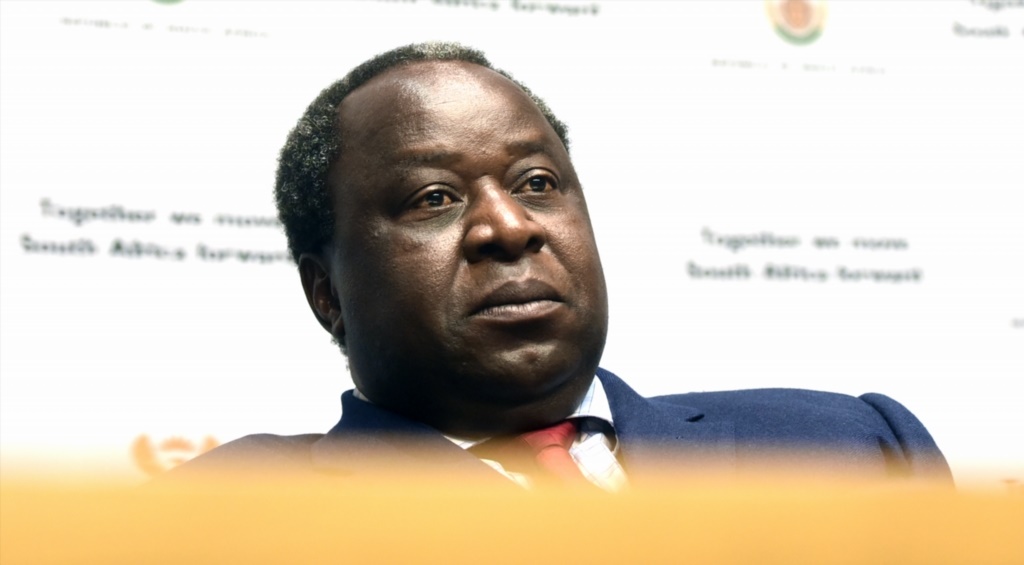


Finance minister Tito Mboweni at the press conference before he delivered his 2019 budget speech (Gallo Images, Brenton Geach)
- Without reforms, SA’s debt levels are expected to exceed 100% of GDP in three years and peak at 140.7% of GDP before the end of this decade.
- But Moody’s is doubtful of SA’s track record in reducing government debt and budget deficits.
Moody’s says South Africa’s track record in reducing government debt and budget deficits shows that the country will struggle to fulfil Finance Minister Tito Mboweni’s promise to stabilise its debt levels within the next three years.
In the adjustment budget tabled on Wednesday, Mboweni presented an “active scenario” in which government would actively reduce spending and enact economic reforms that will help the country narrow the budget deficit so that debt peaks at 87.4% of GDP by 2023/24. If nothing is done, SA’s debt levels are expected to exceed 100% of GDP in three years and peak at 140.7% of GDP before the end of this decade.
To achieve the favourable “active scenario” outcome, SA will require a reduction in government expenditure and/or increase tax revenues in the country so that government debt levels fall by R250 billion. However, Moody’s says SA will be constrained by its “fiscal rigidities” and its meagre growth outlook which will make it hard to reach this target.
“Given South Africa’s weak track record of fiscal consolidation in recent years and the weak medium-term economic outlook, debt stabilisation by 2023 will be very difficult to achieve,” said the agency on Thursday night.
- READ | Greece, Zimbabwe, post-war Germany: How Mboweni sees SA if urgent reforms aren’t rolled out
Some economists in the country agree. Johann Els, chief economist at Old Mutual, said the Finance Minister made no mention of any policy changes to fast track the fiscal consolidation mentioned in the budget.
“Apart from a reference in the speech that the State will be implementing policy changes highlighted in Treasury’s 2019 policy document, no new policy measures to address growth were announced, which in my view was very disappointing,” said Els.
Instead, Mboweni revealed that SA’s gross tax revenue is expected to fall by R304 billion or 6% of GDP this year compared to the previous fiscal year. A shrinking tax base as more people lose their jobs during the current lockdown means that fiscal consolidation through increased tax revenue will be a challenge for the country. As such, government will need to reign in the deficit through spending cuts, said Els.
Moody’s said the speed at which the government recovers its revenue intake and curbs the debt spiral will drive SA’s creditworthiness.

